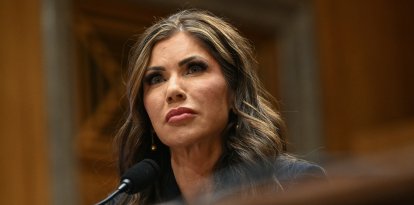Pentagon ends Musk's mailer that asked employees to be accountable every week
The move comes after Musk officially made his departure from the federal government and said he was "disappointed" by the spending in Trump's "Great, Wonderful" bill.

Pete Hegseth, Pentagon leader, in a file image
The Pentagon on Wednesday announced the elimination of one of the most controversial measures pushed by Elon Musk during his brief leadership of the Department of Government Efficiency (DOGE): the weekly mailer in which federal employees were required to report what they had done during the previous week.
The initiative, known as the "What did you do last week?", was implemented by Musk in February and required all federal employees to send an email each week detailing what tasks they accomplished or pushed forward. The Tesla chief warned at the time that failure to comply with this requirement would be interpreted as a voluntary resignation by staff members.
The policy has been widely criticized since it was imposed. Only half of federal personnel responded to the first mailing, and many agencies advised their workers to ignore it. In addition, multiple lawsuits were filed in court by federal employees who considered the measure coercive.

Politics
Elon Musk manifestó públicamente sentirse “decepcionado” por el gasto del “Gran, Maravilloso” proyecto de Ley de Trump
Luis Francisco Orozco
The cancellation of the system was confirmed Wednesday by a Pentagon spokesman. Official Jules Hurst said the measure would become ineffective as of the following Wednesday. As part of the program's shutdown, employees were asked to include in their final mailing "one concrete idea to enhance efficiency or root out waste."
"This initiative provided leaders and supervisors with additional insights into their employees' contributions, fostered accountability, and helped to identify opportunities for greater efficiency and effectiveness throughout the Department," Hurst said in an official statement.
For many analysts, the Pentagon's decision marks a clear departure from some of Musk's most controversial policies since he assumed temporary duties in the federal structure. The management style, characterized by significant oversight and a high level of individual demand, had generated some rejection in various sectors of the government, especially among career workers and even some members of Trump's cabinet.
The move, moreover, comes after Musk said he was "disappointed" by the spending in Trump's "Big, Beautiful" bill.

























